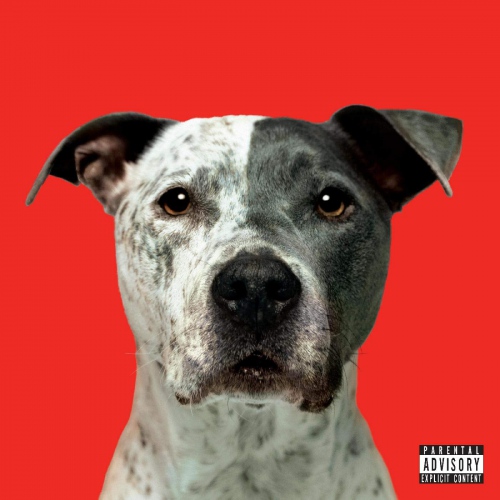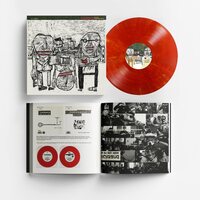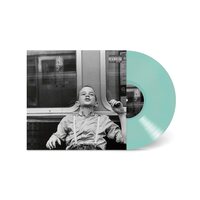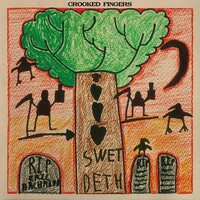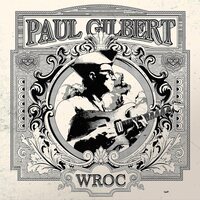In the life of any interesting artist, there is the perpetual war between the simplicity of public perception and the complexities of reality. Consider Hanni El Khatib, a definitive purveyor of visceral, blues-wracked, punk-spiked, soul-warped, knife fight rock n' roll over the last decade. You may be familiar with him through any one of his four acclaimed solo albums on Innovative Leisure, his work with Dan Auerbach of the Black Keys, or as one of the rare polymaths able to artfully blend serrated guitars and hardcore rap on collaborations with GZA and Freddie Gibbs. And while these are all real things that could accurately yield a sketch of the multi-dimensional Los Angeles-based artist, they amount to little more than a black and white pencil sketch.  More compelling is the Hanni El Khatib of terrestrial existence, who is less susceptible to being pigeonholed by shrewd branding or capsule biography. There is the Hanni El Khatib who existed before he was a professional musician. This was the rap and punk-revering San Francisco skate rat, who grew up digging in the crates for samples to flip on his bedroom MPC -- who would eventually become the creative director for the venerable streetwear label HUF. There is the second chapter in which El Khatib moved to LA to pursue music full-time and almost immediately found himself embraced by KCRW and on tour with Florence and the Machine. Music supervisors synced his music in Audi commercials that played at the Super Bowl. The LA Times said that El Khatib's voice is like 'woodsmoke or bourbon, acrid yet sweet, as timeless as jeans and a T-shirt' versatile enough to make a classic sound fresh again.' While across the pond, The Guardian claimed that El Khatib was like 'if Joe Strummer came back as an angry young Filipino-Palestinian American.'  From 2010 until 2017, there was the usual cycle that consumes most working 21st musicians: make an album, and tour it for the next 18 months. Return home, rinse and repeat. And with it came the predictable pitfalls that ensnare too many artists whose professional obligations require high-octane performances before 1,000 or more strangers every night. It is a dream until that one night when it isn't any longer, and despite his gratitude for his fans and station in life, El Khatib found himself wracked by depression and anxiety. What had once been joyous creative outlet felt like a job. In the wake of the release of 2017's Savage Times, it became readily apparent that if El Khatib didn't make drastic changes to his lifestyle, there might not be a life to speak of. So he quit drinking, stopped touring, and took an indefinite hiatus from the studio.  With music temporarily out of the picture, El Khatib returned to one of his first loves: design. Partnering with his longtime friend and former employer Keith Hufnagel of HUF, El Khatib founded Metropolitan, a popular skateboard brand that recently did a collaborative run with Adidas. But eventually, the desire to create songs slowly returned. It helped that El Khatib purposely downsized his living arrangements, moving out of a spacious house with a well-appointed studio in Beachwood Canyon into a smaller dwelling with a bedroom lab that mirrored the cramped confines of how El Khatib first began making music as a teenager.  What would eventually become El Khatib's fifth studio album, the virtuosic but characteristically raw Flight began as spontaneous experimentation. Over the last several years, El Khatib had become close friends with Leon Michels, best known as the mastermind of the soul controllers, the El Michels Affair, but who has also quietly racked up producer credits for the likes of pop juggernauts like Lana Del Rey, Travis Scott, A$AP Rocky, and Eminem -- as well as working in sessions with Grammy-winning super-producer Mark Ronson.
Release date:
May 15, 2020
Label:
Install our app to receive notifications when new upcoming releases are added.

Recommended equipment and accessories
-

Audioengine A2 Plus
Precision-engineered 2.75-inch woofers and a 0.75-inch silk dome tweeter, featuring built-in DAC and Bluetooth connectivity for seamless integration.
-

Vinyl Care - Top Picks
A selection of accesories to keep your turntable equipment & vinyl records in the best shape
-
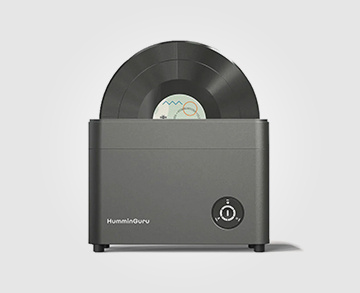
HumminGuru: Ultrasonic Vinyl Record Cleaner
Advanced ultrasonic technology with customizable cleaning cycles and a large tank capacity to thoroughly remove dust, dirt, and contaminants
-

Pro-Ject Phono Box DC Pre-Amp
Compact, high-performance phono preamplifier for both MM and MC cartridges, delivering a clean, detailed signal with minimal noise.
-
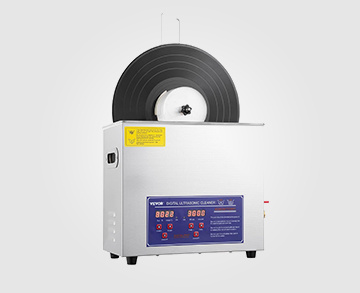
Vevor Ultrasonic Cleaner
Thoroughly clean and restore your vinyl records, removing dust, dirt, and grime from every groove without damaging the surface
Featured Upcoming Vinyl
-

Fuerza Regida 111XPANTIA (Deluxe; Amazon Exclusive Edition)
Sony U.s. Latin
April 3, 2026 -

Quicksand Manic Compression (Deluxe; Book)
Iodine Recordings
April 10, 2026 -

Tori Amos Strange Little Girls (Heart of Gold Version) [2xLP]
Atlantic Catalog Group
February 20, 2026 -

Callum Beattie INDI (Coke Bottle)
Cooking Vinyl
February 13, 2026 -

Crooked Fingers Swet Deth
Merge Records
February 27, 2026 -

Gangloff & Schenker & Sheppard Universal Light
Vhf Records
February 20, 2026 -

Gong Bright Spirit
Kscope
March 13, 2026 -

Broadside Nowhere, At Last (Purple Smoke With Green Splatter)
Invogue Records
April 10, 2026 -

Paul Gilbert Wroc
Music Theories
February 27, 2026 -

Oh He Dead Ugly
Inkind Music
February 20, 2026 -

The Scratch Pull Like A Dog
Sony UK
March 20, 2026 -

Tim Buckley Tim Buckley (Remastered' Coke Clear)
Real Gone Music
April 3, 2026 -

Wolverine Anomalies
Music Theories Recordings
February 13, 2026 -

Sodom Get What You Deserve (Expanded Edition Super Deluxe) [6xLP]
Bmg
February 27, 2026
